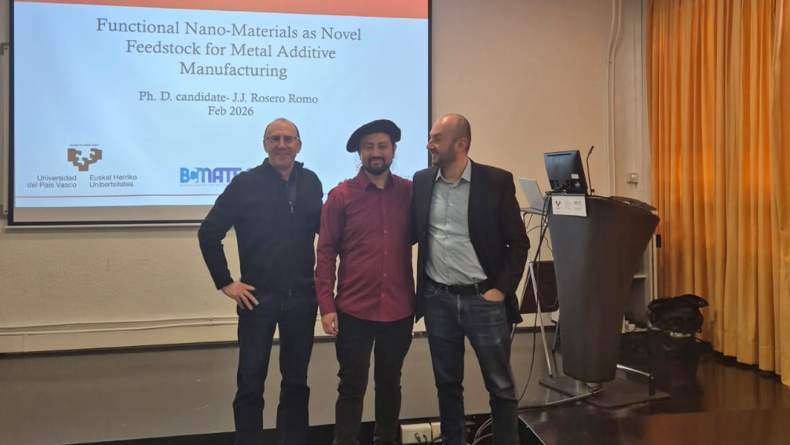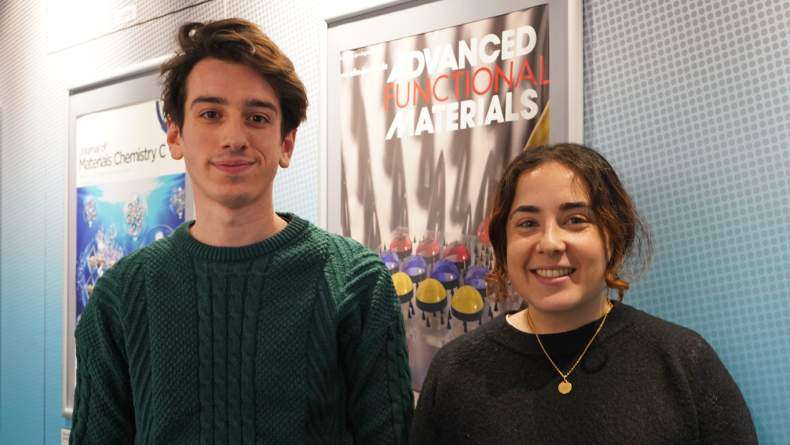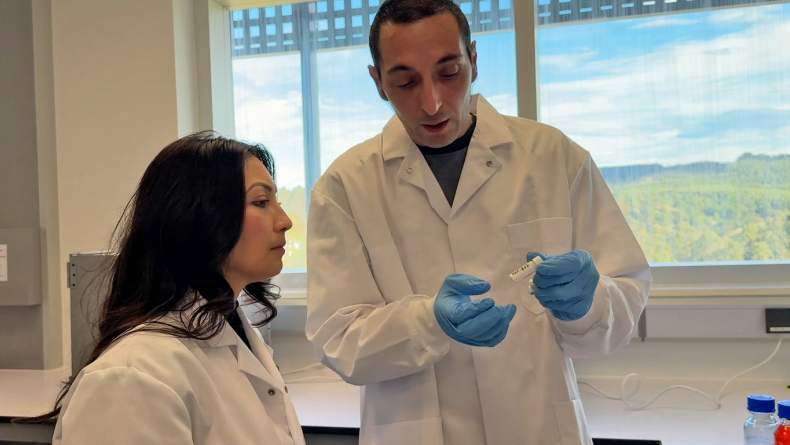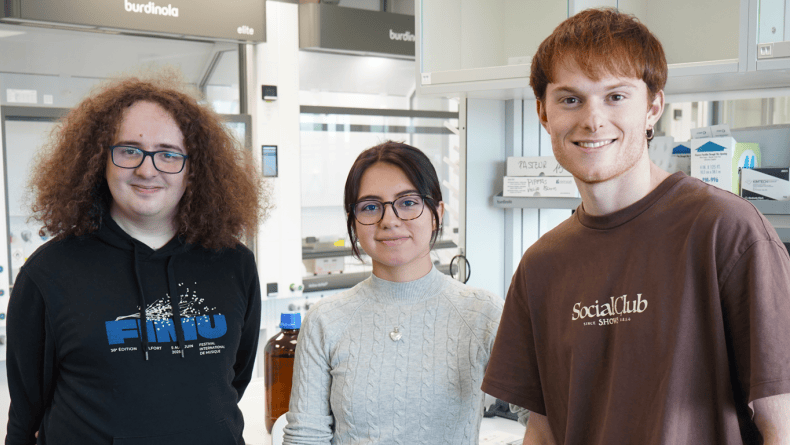Invited Talk with Karolina Milowska (November 6)
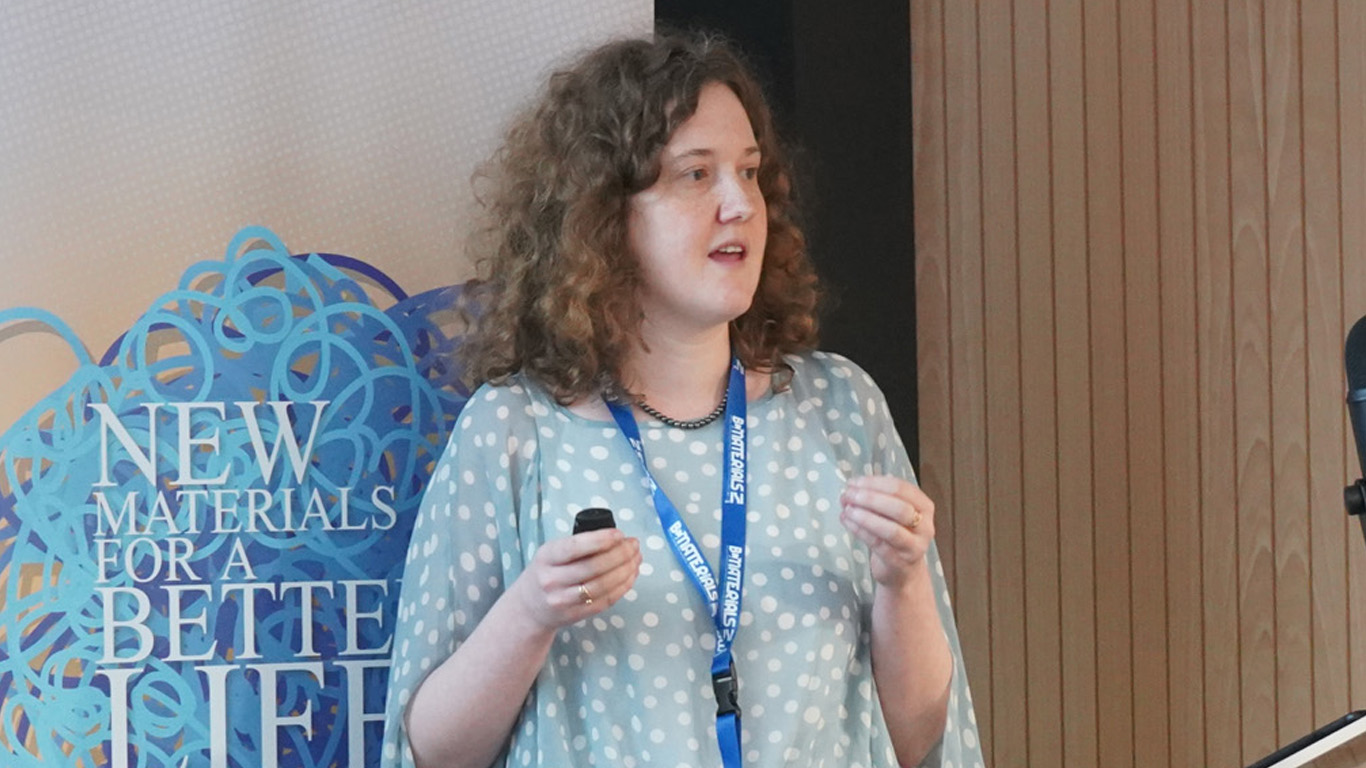
BCMaterials continues its series of invited scientific lectures with a talk by Dr. Karolina Milowska, Ikerbasque Research Fellow at CIC nanoGUNE. The talk will take place on November 6 at 12:00 PM in the auditorium of the Martina Casiano Building, BCMaterials headquarters.
Dr. Milowska will present a lecture titled “From Ultrahigh Magnetic Fields to Interface Engineering: A Multiscale Modelling Paradigm for Nanomaterials in Extreme Environments.”
Modern technologies — from renewable energy systems to aerospace applications — increasingly demand materials that can withstand extreme conditions without compromising performance. In contexts such as solar reactors, electric motors, or satellites, materials are routinely exposed to high temperatures, pressures, magnetic fields, and radiation. Predicting how materials behave under these conditions, and designing robust alternatives, poses a significant scientific challenge that multiscale modeling, especially when integrated with experimental research, can effectively address.
In her presentation, Dr. Milowska will discuss how multiscale modeling serves as a powerful framework for linking phenomena across different length and time scales, shedding light on the behavior of nanostructured carbon materials under extreme environments.
Admission is free until the auditorium reaches capacity.
About Karolina Milowska
Dr. Karolina Milowska is an Ikerbasque Research Fellow at CIC nanoGUNE, where she has been working since 2022. Her research focuses on multiscale modeling of low-dimensional materials for sustainable energy applications, with an emerging interest in materials designed for space technologies. She collaborates closely with experimental research teams, emphasizing the practical translation of theoretical findings.
Before joining nanoGUNE, Dr. Milowska conducted research at the University of Cambridge, where she studied the thermoelectric properties of carbon–metal composites and catalytic nanoparticles, and at the Ludwig-Maximilians University of Munich, where she worked on self-assembly, photocatalysis, and optoelectronic materials.
She holds two Master’s degrees — one in Biophysics and another in Experimental Solid State Physics — from Jagiellonian University (Poland, 2008), and earned her PhD in Physical Sciences from the University of Warsaw (Poland, 2013). Her doctoral thesis was recognized as outstanding by the Faculty Council, and her research in nanoelectronics was honored by the Polish Ministry of Science and Higher Education as part of its Top 100 National Awards for Doctoral Students (2012).
Related news
James Rosero, New Doctor of BCMaterials
We would like to congratulate James Rosero for obtaining his PhDs in Materials Science and Technology from the University of the Basque Country (UPV/EHU). On February 27 he made a brilliant defense…Sara Martín and Stefano Lunghi Join BCMaterials as New Researchers
BCMaterials is pleased to welcome two new members to its research team: Sara Martín Iglesias, a postdoctoral researcher in the Active and Smart Materials research line, and Stefano Lunghi, a…Nanomaterials for Water Remediation and Valorization
Scientific staff at BCMaterials are developing next-generation nanomaterials combined with naturally sourced polymer membranes for water decontamination and reuse. These advanced materials not only…Three New Resarchers Join BCMaterials
The new year has brought BCMaterials the arrival of three new young scientists to our staff. They are the pre-doctoral researchers Karen Cano and Mikel Russo, along with the post-doctoral researcher…
